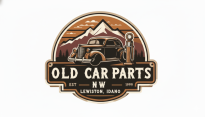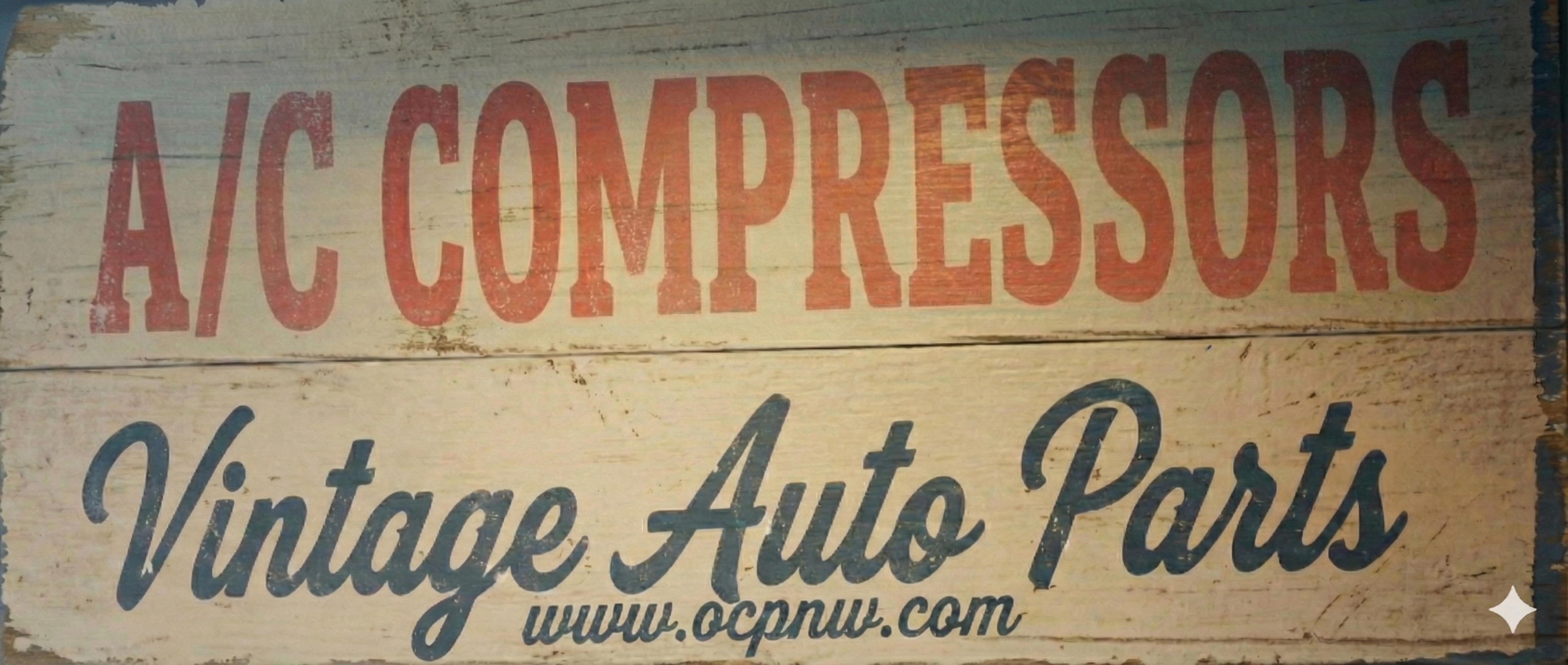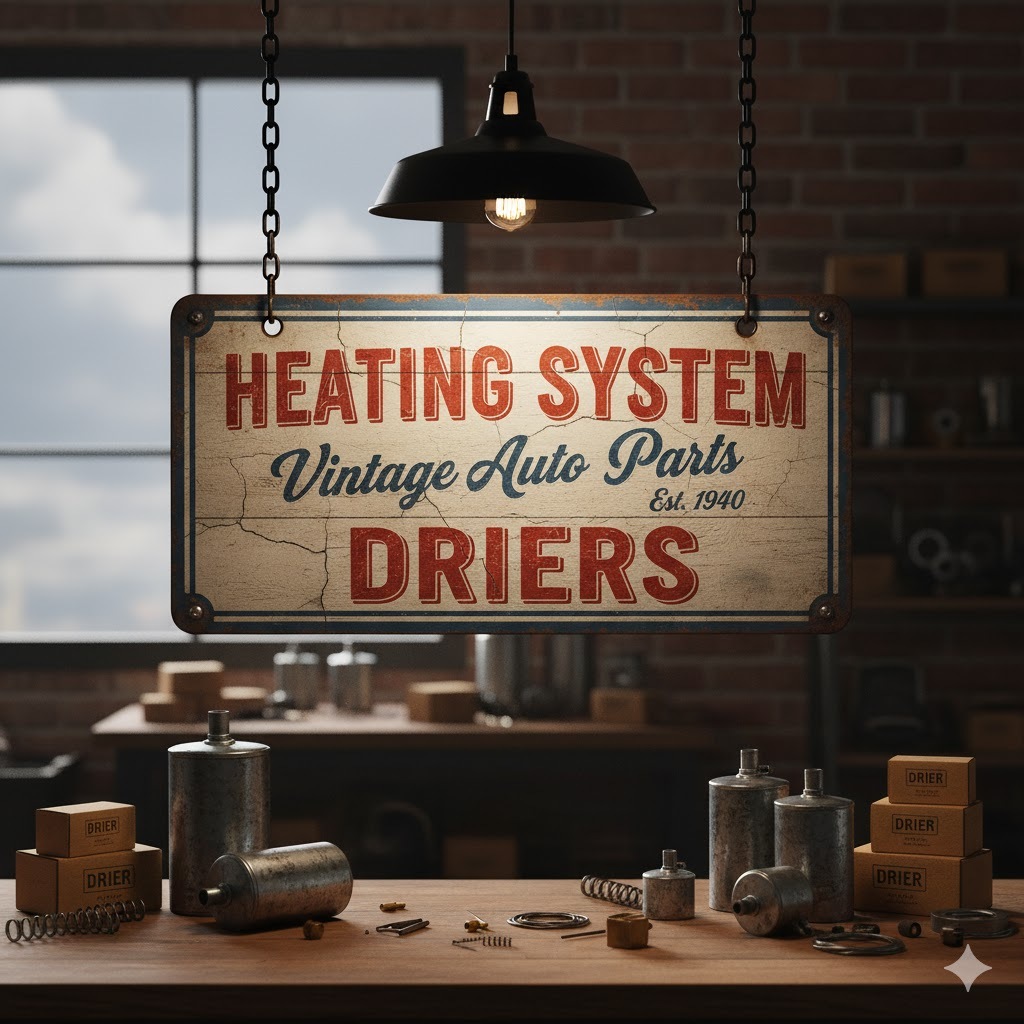Air Conditioning (A/C)
Keep It Cool: NOS & NORS Factory Air Conditioning Parts
Driving a classic car shouldn't mean sweating through your upholstery. During the 1960s and 70s, factory air conditioning evolved from a rare luxury to a muscle car standard. However, maintaining these original systems requires specific, hard-to-find components.
At Old Car Parts NW, we specialize in NOS (New Old Stock) and NORS components to restore your original factory A/C system. We help you keep the authentic look under the hood while getting the cold air blowing again.
Restore the Original System
Don't rip out your factory A/C for a modern plastic kit unless you have to! We stock the rare parts needed to save your original setup:
-
Compressors: Authentic York/Tecumseh (Square) and GM A6 (Log style) units. We often carry NOS units for that perfect factory finish, as well as high-quality remanufactured options.
-
Fluid Management: Replacement Receiver Driers and Expansion Valves (TXV) are essential when refreshing the system or converting from R12 to R134a.
-
Control Parts: Hard-to-find NOS POA Valves, Vacuum Actuators, and Blower Switches to regulate the temperature and airflow exactly as the factory intended.
Our Inventory Covers:
-
Ford/Mercury: "SelectAire" systems.
-
GM: Harrison "Frigidaire" systems.
-
Mopar: "Airtemp" systems.
Stay Cool: Vintage A/C Compressors & Clutches
Is your classic car's factory air conditioning blowing hot air, or is the compressor making a loud grinding noise under the hood? The A/C Compressor is the pump that drives your cooling system, but after decades of sitting idle, seals dry out and internal pistons seize.
At Old Car Parts NW, we stock authentic NORS (New Old Replacement Stock) and Remanufactured compressors to restore the freeze to your Frigidaire or York system.
The Giants of Vintage A/C
We specialize in the specific units used during the golden age of automotive air conditioning:
-
York & Tecumseh (Square Style): The legendary cast-iron, upright twin-cylinder compressors found on countless Ford, Mercury, AMC, and aftermarket setups. Known for their distinct vibration and heavy-duty durability.
-
GM A6 (The "Log"): The massive, smooth-running axial compressor used on almost every General Motors vehicle from the 60s and 70s (Chevy, Pontiac, Buick, Cadillac).
-
GM R4 (The "Pancake"): The shorter, radial compressor common on late 70s and 80s GM vehicles.
Why Replace?
-
Seized Clutch: If your belt smokes when you turn the A/C on, your bearing or piston is locked.
-
Leaking Seals: Old shaft seals are the #1 source of refrigerant leaks (R12 or R134a).
-
Restoration Correctness: Our units fit your original brackets and hose manifolds perfectly—no need to retrofit a modern rotary compressor that ruins the vintage look.
Protect Your A/C System: Vintage Receiver Driers & Filters
If you are resurrecting a vintage air conditioning system, the Receiver Drier (or Filter Drier) is the one part you must replace. This cylinder acts as the kidney of your A/C loop, containing a desiccant bag that traps moisture and debris. Once a system has been opened or sat empty, the old drier is saturated and useless.
At Old Car Parts NW, we stock authentic NORS (New Old Replacement Stock) receiver driers that fit your original brackets and look the part.
The "Sight Glass" Advantage
Modern replacement driers often look like generic black cans. Our vintage inventory typically features the built-in Sight Glass—the clear window at the top of the unit.
-
Diagnostics: The sight glass allows you to visually check the refrigerant charge (bubbles mean low charge, clear means full) and oil condition—a critical tool for maintaining vintage R12 or R134a systems.
-
Original Appearance: Keep your engine bay looking factory-correct with chrome or painted steel finishes that match the OEM style.
Why Replace It?
-
Prevent Acid: Moisture mixed with refrigerant creates acid that eats your compressor and condenser from the inside out.
-
Stop Blockages: Old desiccant bags often burst, sending pellets into the expansion valve and blocking flow.
-
Fitment: Specific units for Ford, GM (Harrison), and Mopar systems with correct inlet/outlet positioning.


